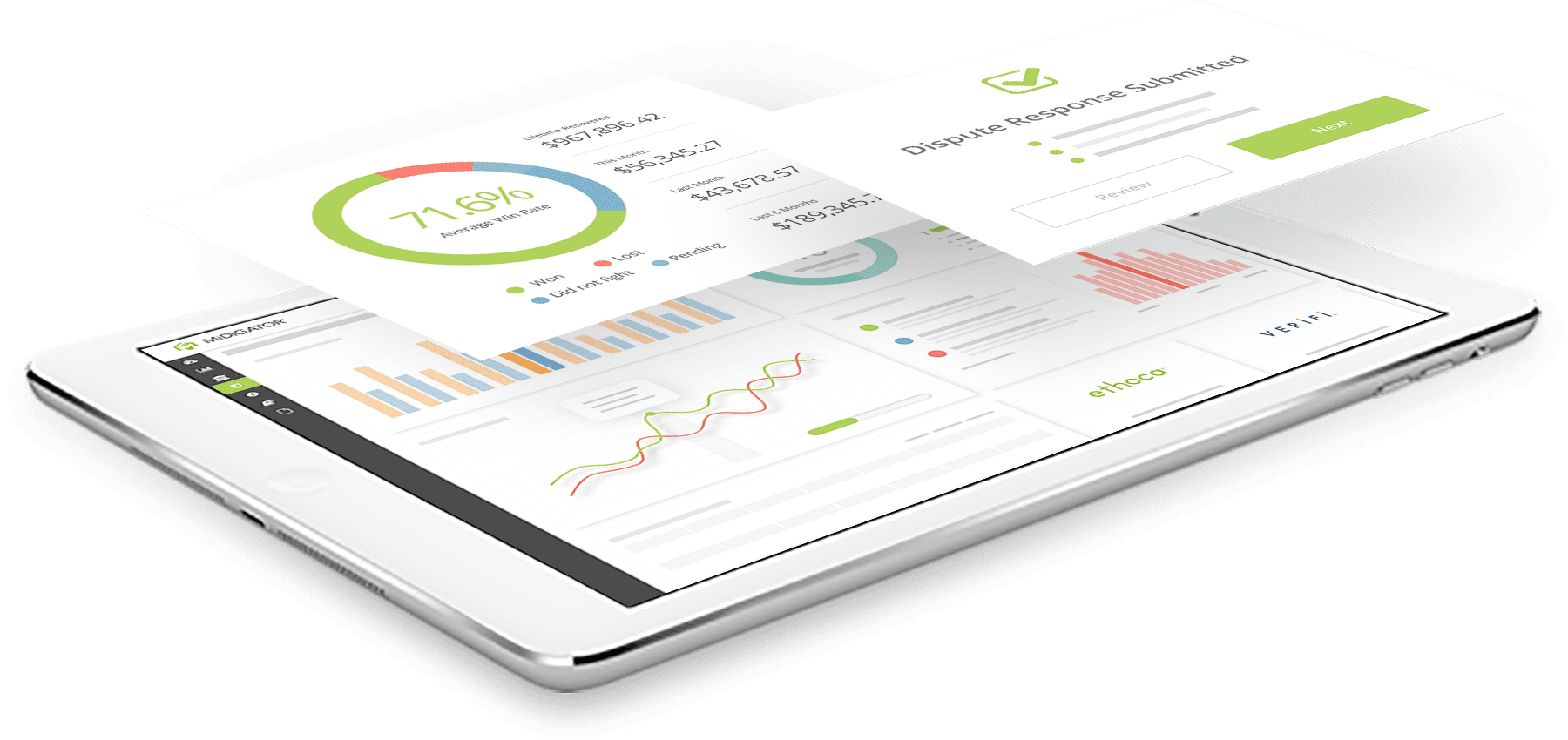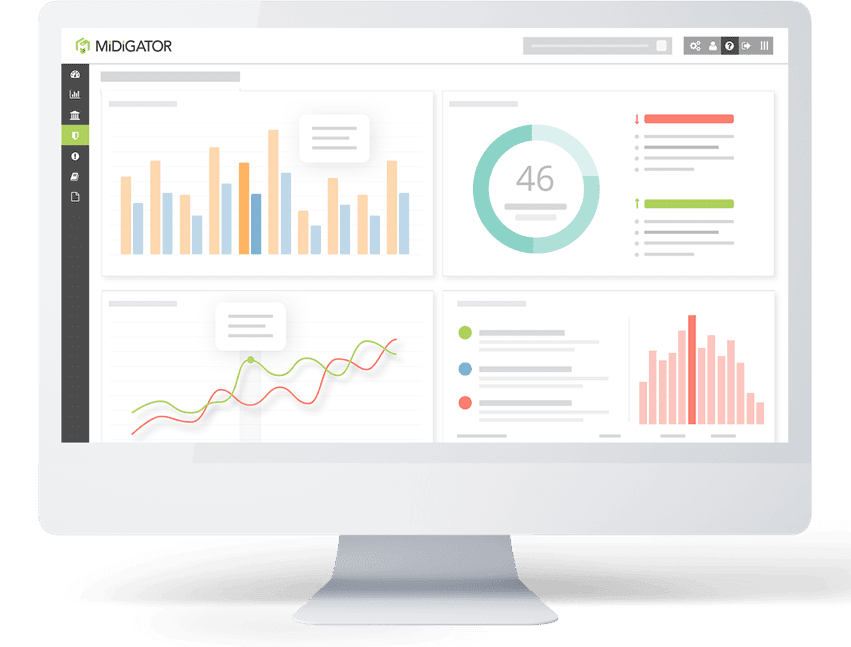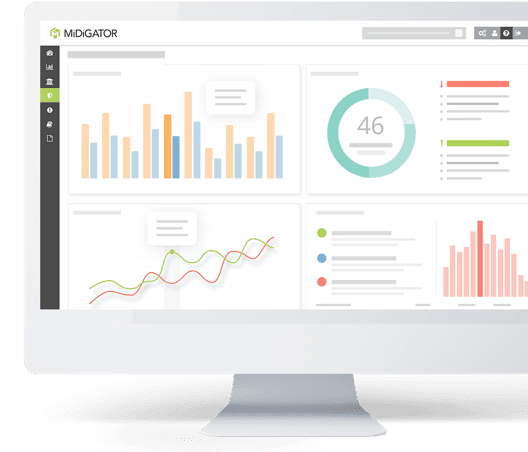Can I Get a Chargeback on a Closed Merchant Account?
- June 8, 2022
- 7 minutes
Running a business is tough. Sometimes, the best decision for you is to get out of business or to take a different path. In most cases, this means closing your merchant account, the business bank account used to process debit and credit card payments.
Your merchant account may also be closed for other reasons, such as violating the terms of your merchant service agreement, engaging in fraud, or maintaining an excessive chargeback-to-transaction ratio.
Unfortunately, even a closed merchant account can receive chargebacks — and often when you’re no longer in a position to prevent or afford them.
This detailed guide answers some of the most commonly asked questions about chargebacks on closed merchant accounts.
If you have a question that isn’t covered in this guide, please let us know. Our team of experts is always willing to offer guidance.
What Happens If My Merchant Account Is Closed?
Your merchant service agreement should outline what happens after your business bank account is closed. Typically, two noteworthy events can happen.
First, your acquirer or processor will probably withhold a certain amount of money for a period of time. These funds can be held for a number of months and are used to cover open authorizations and any new chargebacks.
The second outcome — inclusion on the MATCH list — is only applicable in certain situations.
MATCH is a database identifying merchants who have had their payment processing privileges revoked by acquiring banks or payment processors. Inclusion happens if both of the following conditions are applicable:
- An acquirer terminated its relationship with you, and
- A condition described in one of the MATCH reason codes existed at the time of termination. Examples of MATCH reason codes include excessive chargebacks and bankruptcy.
In other words, closing your merchant account alone isn’t a sufficient reason for being listed on MATCH. However, you may want to check with your processor to confirm whether or not you were added to the database.
Will I Get A Chargeback on a Closed Bank Account?
Unfortunately, you will be held responsible for chargebacks even if your account is closed.
If you are a Midigator® client and your merchant account has been closed, contact your account manager or the support team right away. We’ll help you through the transition.
Card brands limit how long customers have to dispute transactions. Chargeback time limits vary, though most disputes must be filed within 120 days of the original transaction. However, chargeback time limits can extend for up to 540 days after the date of the transaction.
Therefore, you could be responsible for covering the amount of a chargeback for months — or even years — after closing your merchant account. The financial liability doesn’t shift to your processor just because you no longer accept payments.
If your processor requires you to have a reserve account, this is why. A reserve account helps ensure you — and not your acquirer or processor — are financially responsible for any chargebacks (and chargeback fees) that might come in.
Reserve accounts help reduce the risk you present to the processor. If you close your merchant account, go out of business, or otherwise struggle to pay for chargebacks, the funds in your reserve account can cover your liability.
Will I Still Get Prevention Alerts on a Closed Merchant Account?
Just like chargebacks, you may continue to receive prevention alerts after your account has been closed.
Prevention alerts are an effective tool for resolving customer issues before they escalate to chargebacks, helping you keep your chargeback ratio low.
In other words, chargeback prevention alerts are only helpful when you’re actively running your business and maintaining a functional merchant account. So even though you may still receive them, you really don’t want to — especially since each alert you receive probably has a corresponding fee.
To save money, try to cancel your prevention alert service as soon as possible — whether your account was closed by choice or circumstance. If you are a Midigator client, contact your account manager or the support team to update your services.
PRO TIP: Do you have multiple merchant accounts? Try to maintain unique billing descriptors for each merchant ID number (MID).
Prevention alert vendors use billing descriptors to match a disputed transaction to the business that processed it. So if you want to stop receiving alerts, you need to unenroll your descriptors.
However, if all your merchant accounts use the same billing descriptor, you’ll be in an all-or-nothing situation. You will either receive alerts for all your accounts — including ones that are closed — or you won’t be able to receive any for the accounts that are still open.
To make things easy, try to maintain unique descriptors for each MID. Then, when it’s time to turn off services for a closed account, you won’t have as many complications.
Can I Fight a Chargeback If My Account Is Closed?
Even though your merchant account is closed, you can still fight chargebacks and protect your revenue.
The process of fighting chargebacks with a closed bank account is the same as if your account were still open.
Determine if you should fight the chargeback.
Not all chargebacks are worth fighting. In some cases — such as criminal fraud or for low-dollar purchases — it’s best to accept liability and refrain from fighting.
However, you should consider fighting if the chargeback is invalid and you possess sufficient supporting documentation to back up your claims.
Collect supporting documentation.
Before you respond to the chargeback, you need to collect relevant information that supports your argument. This increases the odds of the case ruling to be in your favor.
The supporting documentation you need to collect depends on the chargeback reason code. Look up the reason code in our database and check which evidence is considered most relevant.
Submit a chargeback response.
A chargeback response summarizes your case to the issuer and may include:
- A rebuttal letter that shares your side of the story and outlines your supporting documentation
- Order information that provides details about the transaction in question
- Customer service notes that explain how you attempted to resolve the issue prior to the chargeback process
- Visuals that explain the typical customer experience on your website
- Copies of your policies, such as your refund policy, terms and conditions, or cancellation policy
PRO TIP: Want to make this step as easy and effective as possible? Midigator can help. Our technology recovers the maximum amount of revenue with the most efficient, cost-effective strategy possible. Sign up for a demo today to learn more.
Wait for a decision.
The issuer will make a ruling after receiving your response. The verdict will determine liability for the chargeback and either uphold or reverse it.
If you win, any revenue that’s recovered will probably be deposited into your reserve account.
If you lose, the case is probably closed. Normally, you’d have the option to advance the case to arbitration. But if your merchant account has been closed, your processor probably won’t let you gamble with the high-dollar fees.
What Should I Do to Prevent Merchant Account Closure?
Because merchant account closure is often a result of breaching chargeback thresholds, it’s important for you to implement tools and strategies that help avoid chargebacks in the first place.
✔ Be aware of chargeback thresholds.
Start by familiarizing yourself with your merchant service agreement. Understand what your processor considers to be excessive chargeback activity and what the ramifications are for exceeding the thresholds.
Usually, merchants are expected to keep their chargeback count below 100 chargebacks per month and their ratio of chargebacks to transactions below 0.9% – 1.0% (varies by card networks).
✔ Figure out why you went over the limit.
If your chargeback activity exceeded your processor’s thresholds, find out what caused the breach.
For example, did a marketing campaign unexpectedly attract more bad customers than good? Did you start selling in a new country without understanding the risks? Was your fulfillment team shipping incorrect merchandise?
Data analysis can help reveal the underlying case for chargebacks.
However, conducting this type of investigation can be difficult — if you try to do it on your own. But with help from intelligent chargeback software, like Midigator, data analysis becomes easier and more effective. If you’d like to learn more, contact us for a demo.
✔ Implement solutions to prevent chargebacks.
Once you’ve determined why you’re getting chargebacks, you can take proactive steps to prevent them. Midigator has solutions that stop chargebacks before they happen, keeping your ratio low and reducing the risk of account closure.
- Order Validation: Turn the cardholder’s bank into your ally against friendly fraud. Share business and transaction information in real-time when a cardholder attempts to dispute a charge — such as your return policy or a description of what was purchased. And empower the bank to work on your behalf to resolve the customer complaint.
- RDR: Decide which disputes you are willing to accept liability for — such as cases with certain reason codes or transactions over a given dollar amount. Then allow the bank to automatically refund any dispute that meets your chosen criteria.
- Chargeback Prevention Alerts: Receive advance notice when a transaction has been disputed. Use the extra time to review the situation and see if there is a way to resolve the issue — such as refunding the customer. Then let the bank know what action was taken and if a chargeback can be avoided.
Want to learn more about these chargeback prevention solutions?
Sign up for a demo today. Our team of experts will help you create a management strategy that avoids as many chargebacks as possible so you can keep your merchant account in good standing or get a new one after account closure.













